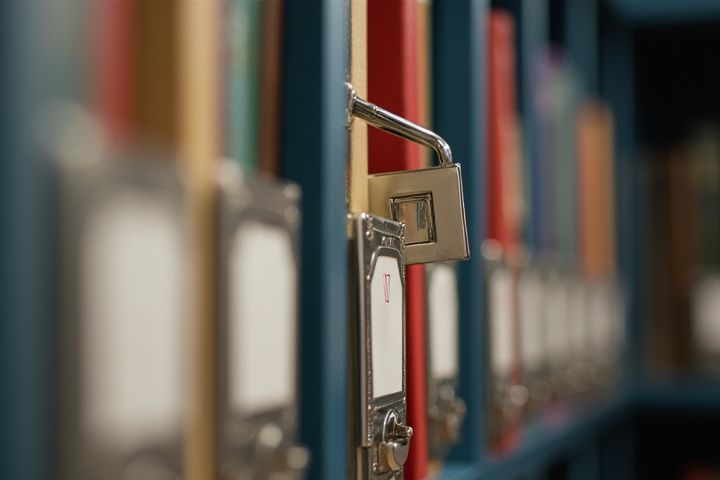
Storing house documents safely is essential for maintaining their integrity and ensuring easy access. You can use a fireproof safe to protect physical documents from fire and water damage while keeping them secure from theft. Alternatively, consider digitizing your important documents and using cloud storage solutions, which offer encryption and easy retrieval. For regular access, a locked filing cabinet in a secure location provides a practical option for organizing physical copies. Additionally, make sure to back up digital files on external hard drives or USB drives for added security.
Where To Store House Documents Safely
Fire-resistant safe
Storing house documents safely is crucial for protecting your assets, and a fire-resistant safe is an excellent option. Look for a safe with a fire rating of at least 1 hour at 1700degF to ensure your files remain intact in the event of a fire. A safe with a capacity of 2.0 cubic feet typically accommodates essential documents, passports, and digital media backups. Ensure it comes with robust locking mechanisms to provide an extra layer of security against theft and unauthorized access.
Safety deposit box at a bank
A safety deposit box at a bank is an ideal location for storing important house documents, such as title deeds, mortgage papers, and insurance policies. These secure boxes provide a high level of protection against theft, natural disasters, and unauthorized access, ensuring your valuable papers remain intact. Banks utilize advanced security measures, including surveillance cameras, alarm systems, and controlled access, to safeguard your documents. By renting a safety deposit box, you gain peace of mind knowing that your essential paperwork is securely stored and easily accessible whenever you need it.
Home security system
For safe storage of house documents, consider using a home security system with a dedicated safe. A fireproof and waterproof safe provides optimal protection against natural disasters, while a smart home security system can monitor your property remotely. Look for safes that offer access via biometric scanning or a digital keypad, enhancing security. Regularly backup essential documents using cloud storage to ensure access even if physical copies are compromised.
Digital cloud storage
Digital cloud storage offers a secure and efficient solution for storing house documents, with leading providers such as Google Drive, Dropbox, and Microsoft OneDrive. These platforms utilize advanced encryption techniques, ensuring that your important files, like deeds and mortgage documents, are protected against unauthorized access. Many cloud services provide up to 15 GB of free storage, with affordable plans for additional space, allowing you to manage your documents without a physical filing cabinet. Regular backups and easy-access features make it seamless to retrieve your documents from any device, keeping your crucial information organized and secure.
Secure USB drive
A secure USB drive is an excellent option for storing house documents safely, offering both portability and encryption features. Choose a USB drive that provides hardware encryption, requiring a password for access, which ensures that only you can view your sensitive documents. Regularly back up your digital files onto this secure device, updating it every few months to include any important new paperwork or changes. Keep your USB drive in a safe place, ideally in a locked drawer or a safe, to further protect it from loss or theft.
Waterproof document bag
A waterproof document bag is an essential solution for securely storing important house documents such as property deeds, insurance papers, and personal identification. Look for bags made from durable materials like heavy-duty PVC, offering a waterproof rating of at least IPX7, which ensures protection against water immersion. For optimal organization, select a bag with multiple compartments and zipper closures to prevent any accidental exposure to moisture and dust. It's advisable to keep this waterproof document bag in a secure location, such as a fireproof safe or a hidden, elevated shelf, to add an extra layer of safety against theft or natural disasters.
Trusted family member's home
Storing house documents at a trusted family member's home ensures enhanced security and peace of mind. Choose a relative who understands the importance of safeguarding vital documents, such as your mortgage agreement, title deed, and insurance policies. Ensure that the location features a secure storage option, like a fireproof safe or a locked filing cabinet, ideally in a private area of the house. Regularly discuss the storage arrangement to maintain transparency and update them on any changes to your documents.
Legal office deposit
For secure storage of house documents, consider utilizing a legal office deposit, where professional safekeeping services ensure the integrity and confidentiality of your documents. These facilities are designed to protect important papers, such as property deeds, mortgage agreements, and title insurance policies, from theft or damage. Many legal offices offer climate-controlled environments with advanced security measures, further preserving your valuable records. You can also inquire about the accessibility of your documents, ensuring you can retrieve them conveniently whenever needed.
Encrypted online vault
Storing house documents securely in an encrypted online vault is an excellent way to protect sensitive information. Services offering end-to-end encryption ensure that only you have access to your files, safeguarding them from unauthorized access. Popular options include cloud storage providers like Google Drive and Dropbox, which offer encrypted file storage along with additional security features. Regularly backing up your documents in such a vault can provide peace of mind and ensure easy retrieval when needed.
Private home office filing cabinet
A private home office filing cabinet is an excellent option for securely storing important house documents. Look for a cabinet with a secure locking mechanism to ensure that sensitive information remains confidential. Organizing your files by category--such as mortgage documents, insurance papers, and tax records--can enhance accessibility and efficiency. Consider using fireproof and waterproof file boxes inside your cabinet for extra protection against accidental damage.
